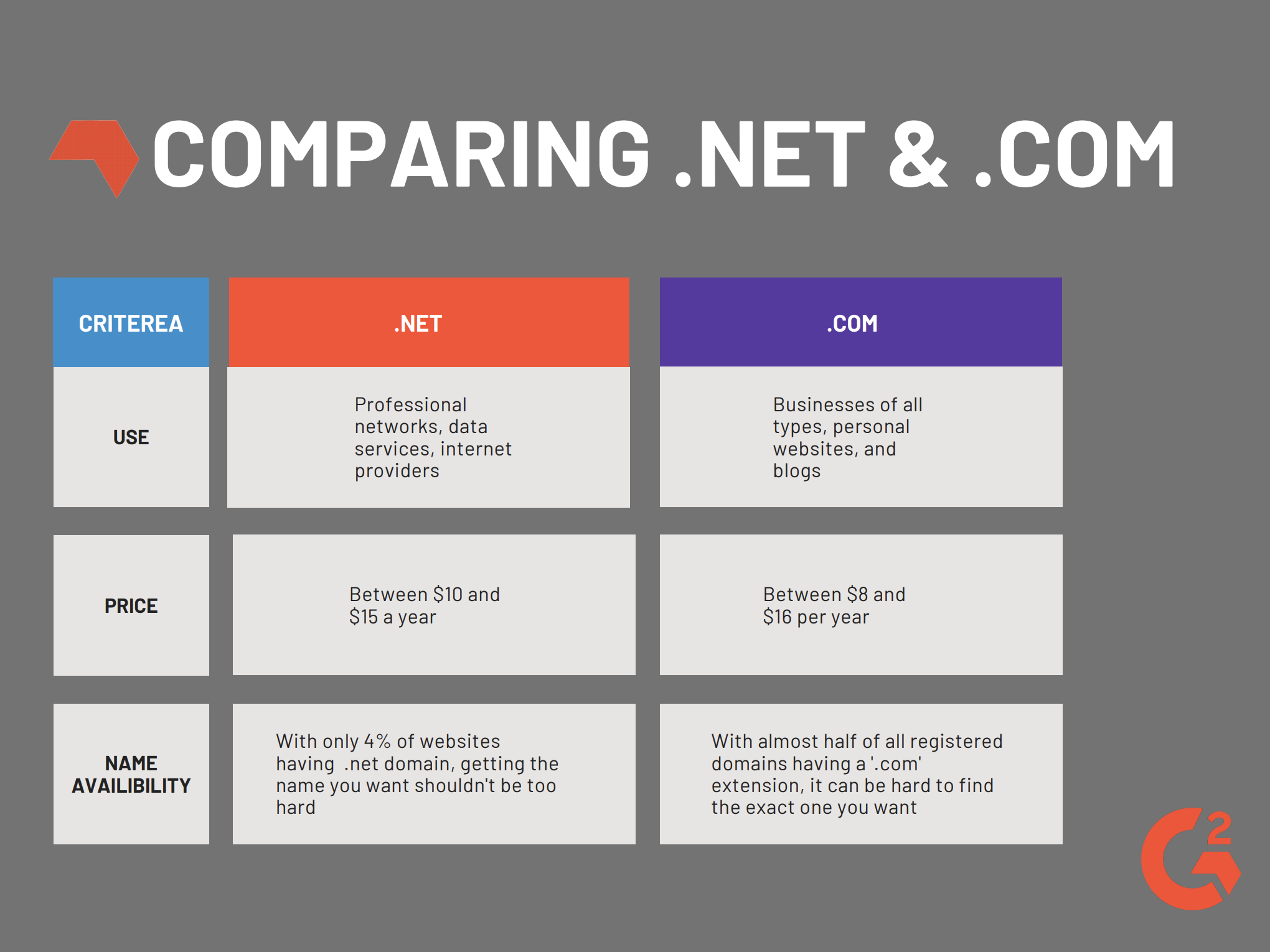One of the most fundamental decisions about launching your online presence is how to position your domain.
Domain names have a surprising power over how a website is viewed. A long, messy domain could make your website come off as unprofessional at best, or a possible security risk at worst. The extension is no different. The way you end your domain sends a message about the type of website you present.
Feel free to jump ahead to a specific section if you already know what you’re looking for:
- Comparing .net and .com
- When to use .com
- When to use .net
- Which is better for SEO?
- Where to register your domain
Comparing .net and .com
Alright, so you’ve grown up seeing some websites ending with .com, some with .org, and still other with .net. What do they all mean?
Is .com or .net better?
Generally speaking, .com domains are the best choice for most companies and individuals looking to establish a web presence, simply due to the fact that they are far more common than the alternatives. A .net domain, in particular, is ranked lower by Google than a .com.
The difference between a .net domain and a .com domain is that .com refers to a “commercial” domain, which includes business web platforms, eCommerce storefronts, personal websites, blogs, and several other general categories. Basically, if you want to make money online, a .com domain is the way to go.

On the other hand, the .net extension refers to a “network,” and is generally reserved for usage among networking services, email and chat platform, and similar service providers.
When to use .com
A .com article is best used at the end of a website being used by a private entity, be it an artist, corporation, or freelance contractor.
These domain extensions are so common, in fact, that nearly 47% of registered domains end in .com. Because of this, using .com is an excellent way to build credibility for your website as it is such a fixture amongst the online business community. It can also help increase the reach of your digital presence as most devices have built in features to make it easier to navigate to a .com domain.
Make sure you choose a .com domain name that represents your business and what you do. After all, most people’s first thought is that your organization can be found online at www.’your business’.com.
Want to learn more about Domain Registrars? Explore Domain Registrars products.
When to use .net
While a .com domain is probably what you’re looking for, it can be useful to know when a .net domain should be used. Often, a .net domain can be found when a website is offering a networking, internet, or data hosting service. This type of domain name was originally intended to be used as a way to signify different internet providers, but nowadays these businesses stick to using their .com domain variants instead.
More commonly, .net domains are used to signify a particular catalogue or system of distinct entities. For example, some websites that connect various freelance writers might have a .net domain extension as it denotes a network.
Which is better for SEO?
Alright, enough of the semantics. You want to know how to get your website in the eyes of thousands. I get it.
Generally speaking, it's much better to register your website with a .com domain when it comes to ranking for specific keywords. While this is an overall minor factor in terms of how your website directly ranks via an algorithm, the credibility that comes with a .com domain over a .net domain means there is more opportunity for link building and outreach, which is a crucial part to any pages' ranking.
Where to register a domain
Now that you know the different uses of a .net and a .com domain, it’s time to start looking at registering your website! Luckily, G2 has the scoop on the best domain providers thanks to our hundreds of real-user reviews. Check out the best software on the market now:
COMmunicate with your NETwork
Now that you know the uses of .net and .com, you’re ready to select the right domain extension for your business. Make sure you keep in mind that every aspect of your online presence, even the domain you have your customers type into the search bar, is a reflection of you and your brand. Make sure you’re putting your best virtual foot forward.

Piper Thomson
Piper is a former content associate at G2. Originally from Cincinnati, Ohio, they graduated from Kenyon College with a degree in Sociology. Their interests include podcasts, rock climbing, and understanding how people form systems of knowledge in the digital age. (they/them/theirs)
